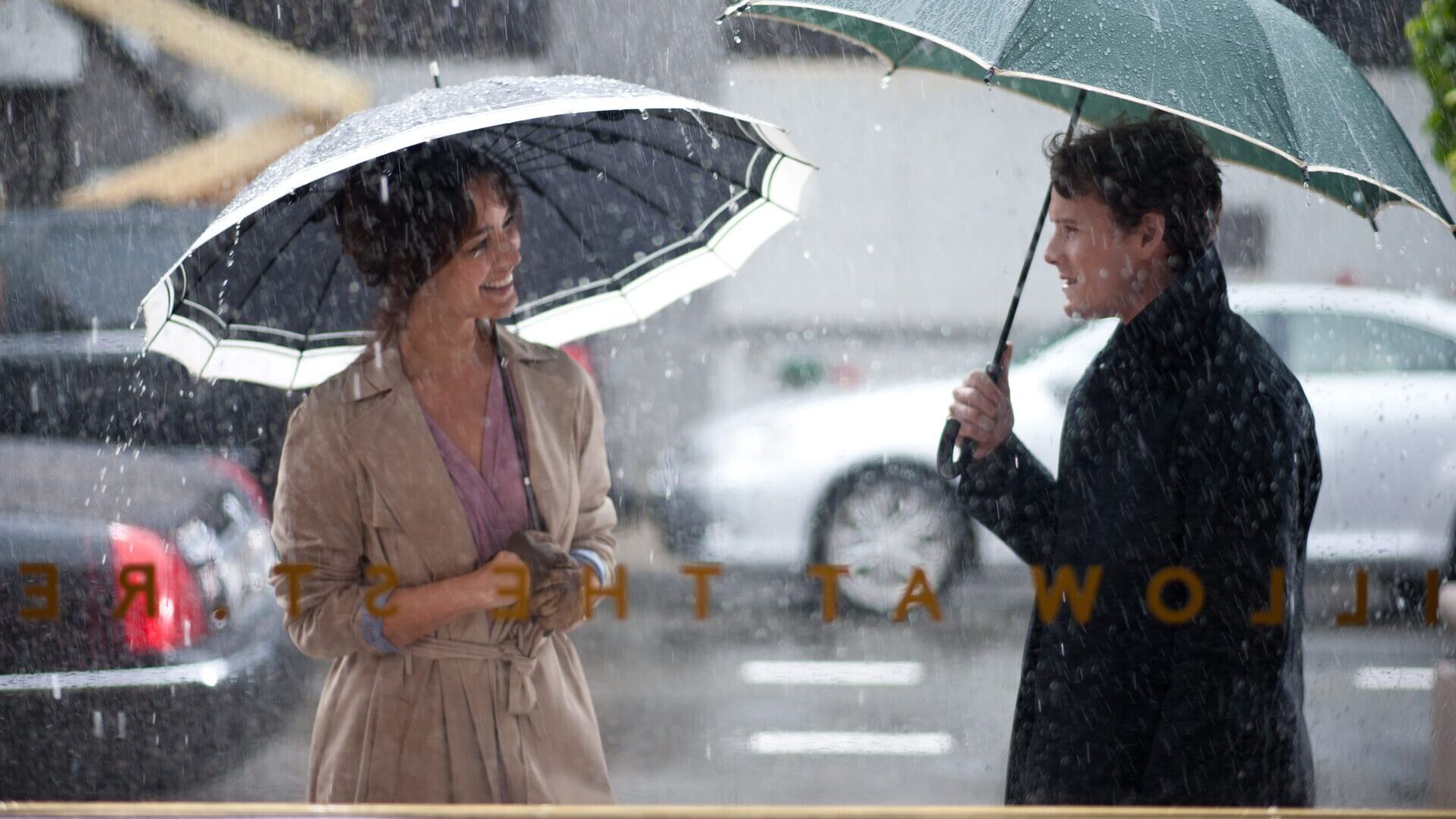Look at the poster for 5 to 7 and try to not be reminded of the romantic comedy’s mid-century heyday – the times when Audrey Hepburn and Dustin Hoffman seduced the American youth and their parents alike. Perhaps it evokes echoes of Woody Allen’s endearing word-vomit diatribes to Diane Keaton, or Mia Farrow down Manhattan sidewalks. Perhaps it is only a corny photoshop job of a millennial stock photo. Television writer Victor Levin’s debut directorial feature actually treads each of these impressions rather well as a romantic comedy that is at once classic in its sentimentality and very modern in its ideology.
5 to 7 tells the story of a twenty-something writer named Brian Bloom (Anton Yelchin) living in New York (those Woody Allen impressions are already pretty accurate). The lack of interest from publishers and ‘law school’ pressure from his parents heighten his frustration with societal structures and squander his social life. That is until he meets Arielle (Bérénice Marlohe), a lovely French woman or Brian’s “Mrs. Robinson”. They fall for each other’s child-like charms, however Arielle is a married woman. Luckily for Brian, Arielle’s family is full of open relationships as her husband (Lambert Wilson) – also involved in a ‘5 to 7’ relationship – and children welcome Brian into their family and help him find success.
Television writer Victor Levin’s debut directorial feature actually treads each of these impressions rather well as a romantic comedy that is at once classic in its sentimentality and very modern in its ideology.
It all seems much more complicated than it actually is. In fact, it all plays out with simplicity and elegance. Levin chooses to not over-convolute his plot with excess romantic drama and conflict. Instead, he plays it lightly, focusing on the smaller joys of teaching others about your interests, culture, and the environment you live in. An absolutely charming sequence finds Arielle teaching Brian how to decipher French wines, cut to Brian doing the same with cheap American beers. Scenes often play without cutting from long takes, often in wide shots giving distance and room to breathe, a directorial choice that brings genuineness to the film’s largest fault. It is slightly tough to buy into Brian and Arielle’s relationship, but Levin’s theater-like sensibility gives the odd-couple pairing that much more believability.
Just when the earnestness of it all starts to get a little sticky in the sap, Glenn Close and Frank Langella make a delightful, all-too-brief appearance as Brian’s disapproving, but supportive parents. Give them both an Oscar nomination for playing some of the more dimensional parents in recent cinema. As 5 to 7 wraps up in a pleasant, but frustratingly cliché resolution, Levin’s skills as a writer become most apparent. Though, his narrative sentimentality feels either fresh or dated, he’s a gifted wordsmith with his dialogue and the authenticity of his characters is charming in molding the corny classic ways of the romantic comedy for an all too ironic modern millennial audience.
‘5 to 7’ is now playing at Landmark Theatres.
Jasper Bernbaum
Jasper is a contributing writer for Cinemacy. He combines his love of music with his visual eye into a passion for live photography. He holds a BFA in Film Production from Chapman University and is an avid filmmaker, watcher, and all around cultural adventurer.


